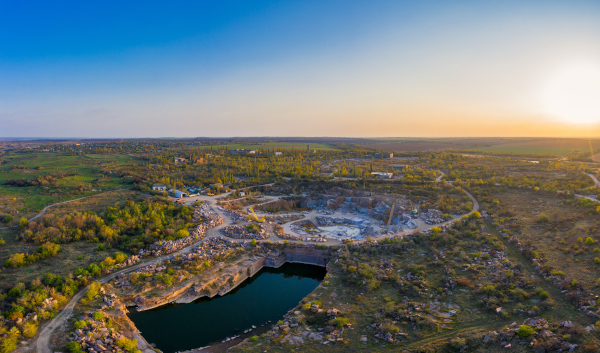Preparing for hydrogen
A new federal clean-energy investment tax credit could generate $21 billion worth of development in the Canadian hydrogen-energy sector, says Canada’s Natural Resources Minister.
Unveiled in the government’s fall economic statement, the 30-percent tax credit is tied to capital costs and set to take effect in the 2022-23 fiscal year. It is designed to make Canada a leader in the transition to net-zero emissions.
Clean-technology investments related to clean hydrogen, based on carbon intensity at the source of the fuel’s production, are among those eligible for the tax credit.
The credit will also be available to entities that produce clean technologies tied to wind, solar, small-scale hydro-electricity, and small-modular nuclear reactors.
“Some of the work in terms of finance, calculating what we think the numbers will be, will be ongoing over the next few months,” Natural Resources Minister Jonathan Wilkinson said in response to questions from Research Money, during a news conference at Simon Fraser University’s downtown Vancouver campus in November.
“But with respect to the hydrogen tax credit, I believe that the number that we came up with as a preliminary number was about $7 billion. That would actually be the government's expenditure. We are essentially paying a third of the 30 percent of the capital costs. So multiply by three [and] we're expecting over $20 billion in investment in the hydrogen space.”
Credit based on project’s carbon intensity
Since the tax credit will be based on a project’s carbon intensity, Ottawa is not distinguishing between hydrogen produced from renewable sources or fossil fuels. In other words, projects powered by green hydrogen (produced from entirely renewable sources), blue hydrogen (created from natural gas, including carbon storage) or grey hydrogen (produced from methane without capturing greenhouse gases) will be eligible for the investment incentives.
“It can apply to all kinds of hydrogen,” Wilkinson told Research Money. “I, for my sins, used to run a company that was involved in the hydrogen space. And in fact, there were some folks here who actually worked at the same company and others that were at associated companies. I really don't like the blue, green, purple, turquoise kind of thing. I think we should be talking about the carbon intensity of the fuel.
“And we are focused on very low-carbon-intensity hydrogen. So any form of hydrogen that can actually meet the carbon-intensity thresholds, that are going to be defined over the next few months, will be eligible for the credit.”
Shell, governments team up
The tax credit comes after Ottawa, the B.C. government and Shell Canada teamed up in 2021 to form the $105-million B.C. low-carbon innovation centre. The centre will focus on carbon-capture and storage, the production of low-carbon, or blue, hydrogen created from fossil fuels, biofuels and synthetic fuels, renewable natural gas, and battery technologies.
Environmentalists have criticized the centre due to its alignment with fossil fuels.
Research Money asked Wilkinson how he would respond to critics who might say that the tax credit should not apply to projects powered by hydrogen sourced from fossil fuels.
“So what I would say is: I think folks sometimes get mixed up in terms of the debate between fossil fuels and the causation of climate change,” said Wilkinson. “Fossil fuels don't cause climate change. Carbon emissions associated with the combustion of fossil fuels cause climate change.
“And, what we need to be doing is driving down the carbon intensity of all of the fuels that we use. In the context of hydrogen that's derived from natural gas, there are processes now and there are processes being developed by companies, including some here in Vancouver, that can actually reduce the amount of carbon associated with natural gas-derived hydrogen to very, very low levels. It is a very important pathway for us to actually move forward with a lower carbon future.
“It is, at this stage, quite a bit less expensive than hydrogen derived from electrolysis. And, it offers alternative pathways to electrifying everything. We need to be focused on what the real issues are — the issues are carbon emissions. And [those emissions are] something we're all targeting to ensure that we are reducing over time.”
Incentive balances U.S. perks
Colin Armstrong, president of the B.C. chapter of the Canadian Hydrogen and Fuel Cell Association, said Wilkinson’s anticipated investment ratios are “pretty good.”
“Those are pretty accurate numbers in the multiplier effect, which is three or four times at least,” said Armstrong.
He described the tax credit as very supportive of hydrogen-based infrastructure projects, which will prompt investments in this sector and dovetail with the energy measures in the US government's Inflation Reduction Act.
Well-positioned to compete
Wilkinson said Canada is well-positioned to compete with the U.S. for hydrogen-related investments, because the Trudeau government has adopted a three-pronged strategy that puts a price on carbon while emphasizing regulation and investment.
He contended that President Joe Biden’s government can only focus on investment because it does not put a price on pollution. Any pertinent regulation is being stalled by the high profile discord between Biden’s Democrats and Republicans.
Armstrong is also the president and CEO of North Vancouver, B.C.-based infrastructure developer Hydrogen Technology and Energy Corporation (HTEC), whose projects include fuelling stations. He said the tax credit will improve the hydrogen-based transportation sector’s ability to invest and attract investment in hydrogen production, fuelling station and distribution projects.
“It's also going to support [hydrogen-powered] heavy-duty vehicle deployments,” he noted. “Those [gasoline and diesel-powered heavy-duty vehicles] are one of the big polluters and we really need to shift to zero-emission [vehicles.] So, yeah, it’s very positive.”
Even before the federal tax credit appeared, the B.C. government had established its own Hydrogen Office to spur investment and help other governments across Canada, including Indigenous communities, regulate and approve developments related to the renewable fuel.
Markets include Japan, South Korea, Germany
Wilkinson said Japan and South Korea are the early markets for hydrogen produced on Canada’s West Coast, while Germany and several other countries within the European Union will need hydrogen shipped from the East Coast.
“We are working very actively with Germany to try to get to the point where we're exporting hydrogen to Germany as early as 2025,” said Wilkinson.
He downplayed the potential loss of intellectual property to China as a result of the tax credits.
“This tax credit is really about projects,” he said. “So it's about deployment.”
In late September in Vancouver, Export Development Canada president and CEO Mairead Lavery outlined a plan that calls for the country to put more emphasis on green exports.
For decades, said Wilkinson, Canada could rely solely on exporting raw natural resources. But, going forward, the Canadian economy is going to look “quite different.” Oil and gas will be less significant drivers of economic growth.
More thought needed
“We're going to have to be a lot more thoughtful about how we actually marshal our resources, how we utilize those, how we actually ensure that we're turning those into opportunities — not just to export raw goods, but to actually export technology and technology solutions,” said Wilkinson.
He indicated that the Liberals’ 2023 budget will provide more clean-energy investment incentives. The minister said it is the government’s job to provide certainty for private investment decisions needed to cover the next 60-70 years.
Canada had “the luxury” of being less focused than it could have been in the past, he added, but times have changed. Like so many businesses, the country as a whole now requires a well-defined strategy to reach its goal.
“You shouldn't simply sit on your laurels,” he concluded.
R$
| Organizations: | |
| People: | |
| Topics: |
Events For Leaders in
Science, Tech, Innovation, and Policy
Discuss and learn from those in the know at our virtual and in-person events.
See Upcoming Events
You have 0 free articles remaining.
Don't miss out - start your free trial today.
Start your FREE trial Already a member? Log in
By using this website, you agree to our use of cookies. We use cookies to provide you with a great experience and to help our website run effectively in accordance with our Privacy Policy and Terms of Service.





